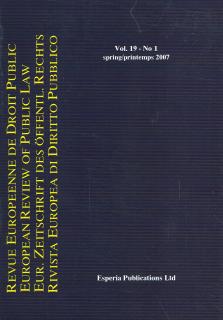
CITIZENSHIP IN THE EUROPEAN UNION: RIGHTS OF FOREIGNERS IN IRISH LAW
JOHN O'DOWD
Professor at the Faculty of Law, University College Dublin
Third country nationals' status can be viewed in terms both of differences in their entitlements and duties and of the legal regime for entry and residence. A third country national lawfully in the State meets relatively few restrictions or discriminations. If an ordinary resident, he or she may vote and stand at a local election. He or she may freely purchase land and, with valid work permit, has the same employment rights as Irish and EU citizens. National treatment of this kind is given mostly for pragmatic economic or administrative reasons. However, third country nationals lack clearly defined legal rights (except as refugees) to enter or reside in the State, however significant their de facto ties with Ireland. The Government is now considering a legal framework for long-term residents who are na¬tionals of third countries. To preserve its freedom of action in such matters and to maintain the Common Travel Area, it has kept its "opt outs" from those parts of the EC and EU Treaties which impinge most directly on immigration and asylum. Developments since 9/11 have drawn Ireland into closer European co-operation over law enforcement and domestic security, without accentuating the legal distinction between third country nationals and Irish and EU citizens.





















